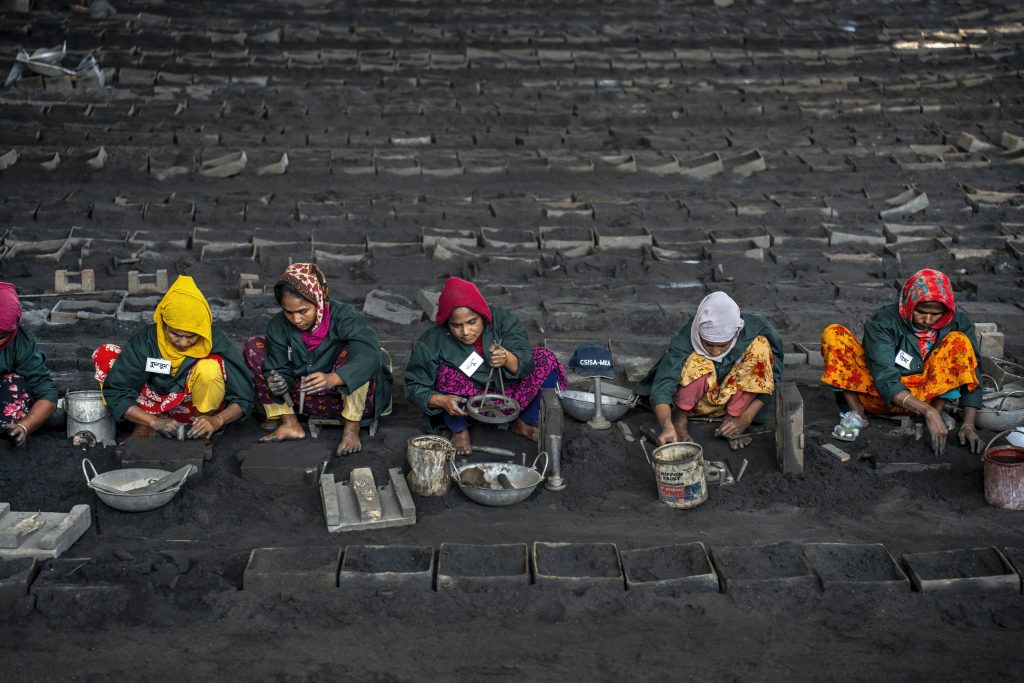Progressive development: preparing women for employment in agriculture-based light engineering

[Photo: Nur-A-Mahajabin Khan]
In recent years, the light engineering sector in Bangladesh has witnessed notable advancements through engagements by Cereal Systems Initiative for South Asia—Mechanization Extension Activity (CSISA-MEA), particularly within foundries and workshops producing agricultural machinery. This transformation has not only modernized the agricultural machinery sub-sector but also contributed to the employment of youth and women. Since 2019, the USAID-funded Feed the Future initiative has supported CSISA-MEA, led by the International Maize and Wheat Improvement Center (CIMMYT) in collaboration with International Development Enterprises (iDE) and Georgia Institute of Technology (Georgia Tech). Their efforts have been instrumental in promoting agricultural mechanization in Bangladesh, with a specific emphasis on engaging youth and ensuring gender inclusivity in the workforce.
CSISA-MEA has been offering training opportunities to the workforce in income-generating activities across various regions under the Feed the Future initiative, including the Zone of Influence (ZOI) and Zone of Resilience (ZOR). These training sessions, conducted in collaboration with the Bangladesh Industrial and Technical Assistance Center (BITAC), a government autonomous body and research center, have equipped women with technical skills such as painting, fettling and grinding, sand molding, and operating light engineering machinery like the fodder chopper and rice transplanter. These training programs have been conducted in CSISA hubs located in Bogura, Jashore, Faridpur, and Cox’s Bazar within both Feed the Future zones.
Over the past 4 years in Bogura, 313 female foundry workers, out of approximately 376 female trainees, have witnessed significant improvements in their job prospects. Among them is Mita Khatun, a mother of two, who received training in sand molding from CSISA-MEA. This training enabled her to secure semi-formal employment at Rony Engineering foundry in Bogura. Previously, she had been working informally at the foundry for six years, primarily engaged in tasks such as moving goods and cleaning machinery parts. She shared that the CSISA training has empowered her to confidently work alongside male colleagues. Presently, she handles around 20 sand molds daily, and her transition from unskilled to semi-skilled work has nearly doubled her weekly earnings, rising from US$15 (BDT 1600) before training to US$ 28 (BDT 3000) afterward.
She says, “I start work in the foundry at nine in the morning and leave at six – that formal timing is efficient, and convenient for me. Also, I don’t have any difficulty doing the job,” she says. She also said the job provides better financial security than work as housemaid, which is irregular and doesn’t provide a guaranteed income.
As part of its dedication to promoting the inclusion of women in the agriculture-based light engineering sub-sector, CSISA-MEA collaborates with workshop and foundry owners, management, and workers to ensure that these workplaces are welcoming and safe environments for women. For instance, the foundry where Mita Khatun now works has implemented measures such as providing a separate washroom for women, with additional initiatives underway to further enhance the workspace’s women-friendly atmosphere. Importantly, this narrative is not an isolated one: several other foundries and workshops in Bogura are also actively employing women and fostering gender-inclusive environments. Such positive transformations not only enhance the lives of women workers but also contribute to improved gender equity and better interactions among all community members, consequently boosting organization productivity.
Tags: Bangladesh, CSISA-MEA, Gender and social inclusion, mechanization
